Rabbana Atina Fid Dunya Hasanah Meaning, Arabic, And Benefits
Rabbana Atina fid dunya is a comprehensive supplication, asking for both this world and the Next. Here is the full meaning and benefits of this beautiful dua.
Advertisements
Rabbana Atina Fid Dunya English Translation
Rabbana atina fidd dunya means Our Lord, give us in this world [that which is] good and in the Hereafter [that which is] good and protect us from the punishment of the Fire.
Rabbana Atina Fid Dunya Hasanah full Dua in Arabic
رَبَّنَآ ءَاتِنَا فِى ٱلدُّنْيَا حَسَنَةً وَفِى ٱلْـَٔاخِرَةِ حَسَنَةً وَقِنَا عَذَابَ ٱلنَّارِ
Transliteration
Rabbana Atina Fid Dunya Hasanatan wa fil akhirati hasanatan wa qina azaban naar.
Advertisements
Rabbana Atina Fid Dunya Hassanah Surah
The surah which rabban Atina is found is surah Baqarah. It is the second chapter of the Quran with 286 verses. The surah is the largest chapter of the Holy Quran.
Rabbana Atina Fid Dunya Ayat Number
Rabbana Atina Fid Dunya Ayat Number is 201 (two hundred and one) in Surah Baqarah. The things mentioned before this verse are the last of the rituals of Hajj, and Allah commanded that when finishing them, we should ask Him for forgiveness and remember Him a great deal.
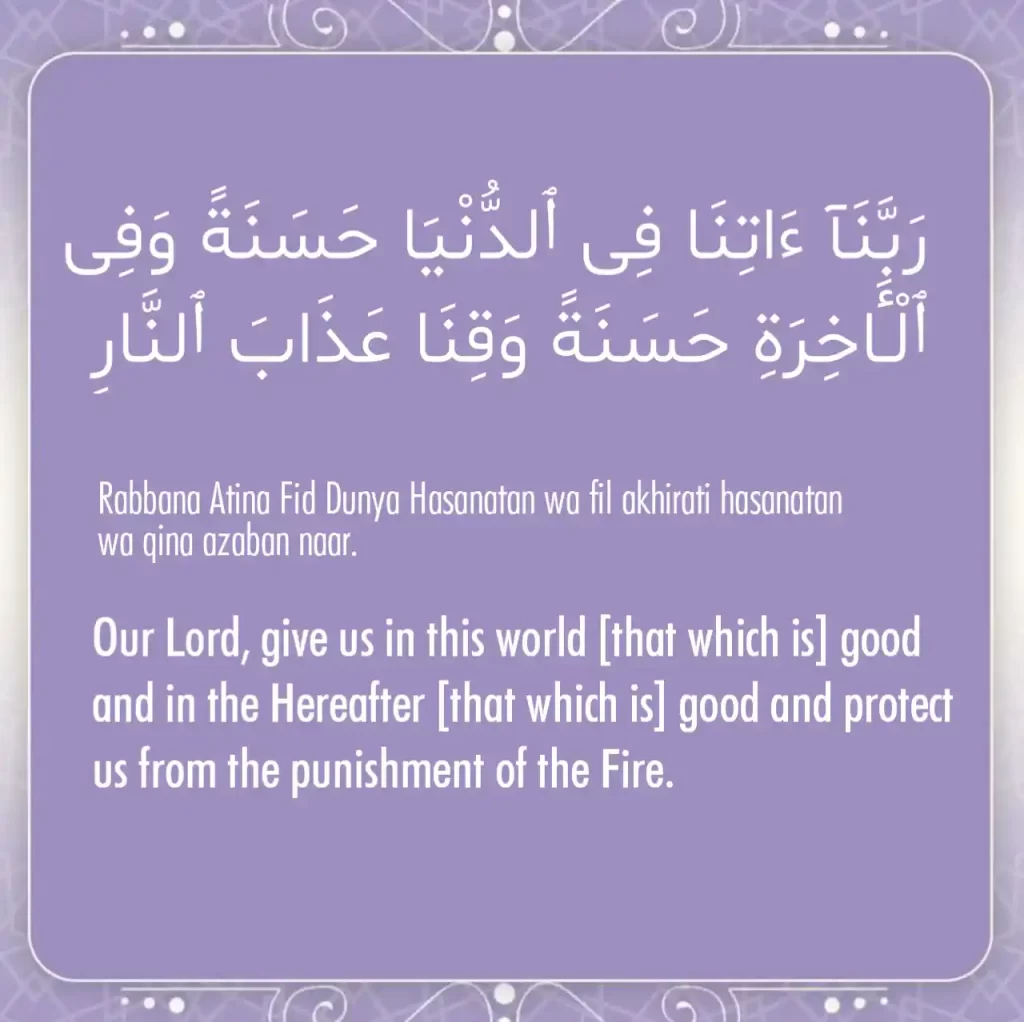
We should ask Him for forgiveness for any mistakes or shortcomings in worship.
Remembering Allah means thanking Him for His blessings by which He enabled us to perform this great act of worship.
This comprehensive and extremely powerful dua can be recited with ease due to it being very short with only twelve (12) words and simple to memorize and recite in our daily lives.
Advertisements
It is recommended to learn and repeat it throughout the day.
Rabbana Atina Fid Dunya Meaning
This supplication is not only one of the most beautiful supplications; rather, is the most comprehensive dua because it covers every matter in Dunya and hereafter.
The good that is sought in (Dunya) this world encompasses all the good of this life and includes everything that is liked by people, such as
Advertisements
- Righteous wife or husband
- Abundant and enjoyable halal provision
- A child who is a source of joy
- Beneficial knowledge (ilaman naafi’an)
- Comfortable car
- Good profession
- Ease and comfort
- Righteous deeds
- Peaceful home and other things that are permissible and are liked
- Comfortable means of transportation
- Sufficient provision Good praise
On the other hand,
The good that is sought in the (akhirah) hereafter encompasses all the good of the afterlife such as
- Safety from punishment in the grave
- Being close to the Most Merciful Lord
- Easy reckoning,
- Entrance into
- Paradise and other good of the Hereafter.
- Attaining the good pleasure of Allah and eternal bliss
- Crossing over the bridge During the standing (on the Day of Resurrection)
- Safety from punishment of hell
- Collecting your book with the right hand
- Drinking from Kausar (pond) of the Messenger of Allah SAW
RELATED POSTS:
- Rabbana Amanna Bima Anzalta Full Dua Meaning
- Rabbana La Tuakhizna Inna Sina Meaning
- Rabbana Zalamna Anfusana Full Dua Meaning
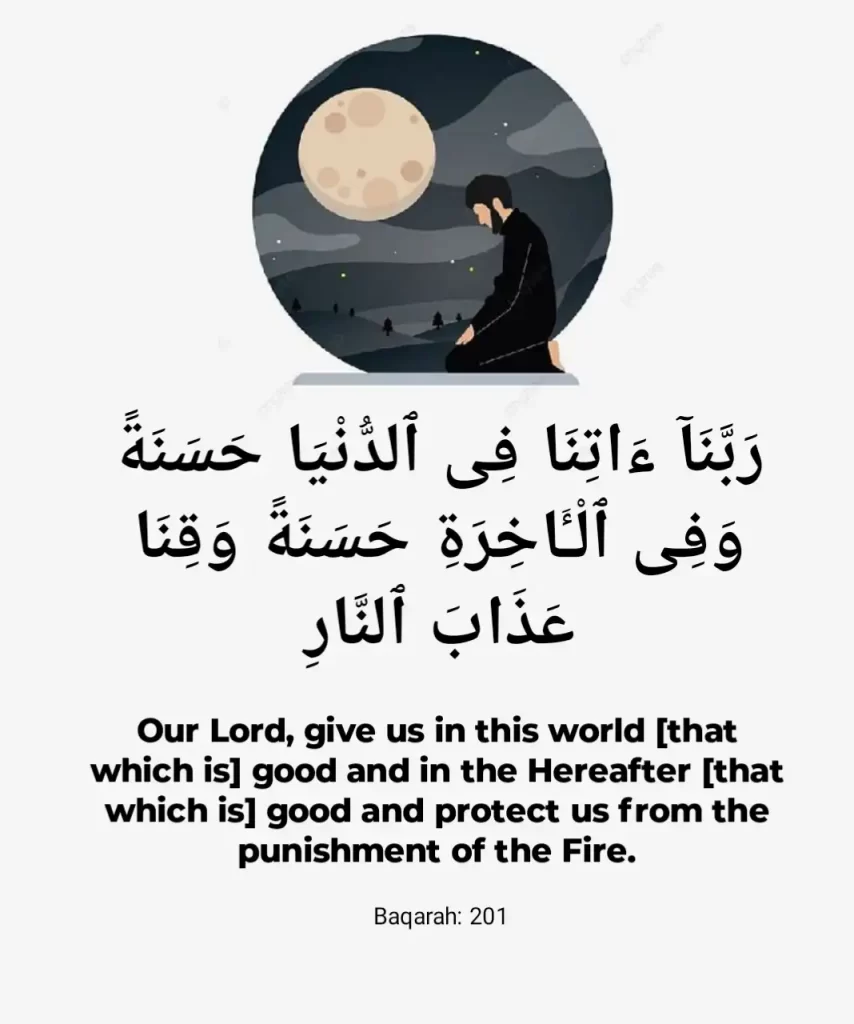
Rabbana Aatina Fid Dunya Hasanah Benefits
The supplication mentioned and praised in the verse comprises all good aspects of this life and seeks refuge from all types of evil in Dunya And akhira.
As for acquiring safety from the Hellfire, it includes being directed to what leads to this good end in this world, such as avoiding sins of all kinds, avoiding the prohibitions, sins and doubtful matters.
Anas was asked, Make supplication for us. He said, Our Lord, Give them good in this world and good in the Next World and protect them from the punishment of the Fire.
They said, More. He said, What more do you want? I have asked for this world and the Next World!
It is find in the Sahih collections that Anas is reported as saying that the Prophet SAW frequently used this supplication:
O Allah Give them good in this world and good in the Next World and protect them from punishment of the Fire. Anas used to use this supplication regularly. It is reported that while ‘Umar was doing tawaf he said,
Our Lord, give us good in this world and good in the Next World and protect us from the punishment of the Fire,’ and that he said nothing else.
Ibn Jurayj said that he heard that the most frequent supplication of the Muslim when standing at ‘Arafat should be: ‘Our Lord, give us good in this world and good in the Next World and protect us from the punishment of the Fire.’
AlQasim bin AbdurRahman said,
“Whoever is gifted with a remembering tongue, a grateful heart, and a patient body, will have been endowed with a good deed in this (Dunya) life, a good deed in the Hereafter (Akhirah) and saved from the torment of the Fire.”
This verse indicates that Allah answers the supplication of everyone who calls upon Him, whether he is a Muslim or a disbeliever or an evildoer.
But His answering a supplication does not indicate that He loves the person who offered it or that that person is close to Him, unless it has to do with the hereafter or spiritual matters.
Anas (may Allah be pleased with him) used to employ it in his supplication, and he would still do it even when he supplicates for other matters.
That is, it seems he never discarded it whenever he supplicates.
The dua is a beautiful supplication in Islam that reflects a comprehensive and balanced outlook on life, seeking goodness in both this world and the Hereafter, while also seeking protection from the punishment of the Fire. Let’s break down the elements of this dua in a listicle format:
1. Invocation of the Lord:
- The dua begins by addressing Allah, the Lord, acknowledging Allah source of all goodness and protection.
2. Worldly Blessings:
- “Our Lord, give us in this world [that which is] good.”
- This part of the dua emphasizes a request for goodness and blessings in the present life. It encompasses a wide range of positive aspects, including health, sustenance, success, and happiness.
3. Hereafter Blessings:
- “and in the Hereafter [that which is] good.”
- The supplicant expresses a desire for goodness and blessings in the Hereafter. This includes seeking forgiveness, mercy, and ultimately, entry into paradise.
4. Balanced Perspective:
- By asking for goodness in both this world and the Hereafter, the dua reflects a balanced approach to life. It acknowledges the importance of worldly needs and desires but also recognizes the eternal significance of the Hereafter.
5. Protection from Punishment:
- “and protect us from the punishment of the Fire.”
- The dua concludes with a plea for protection from the punishment of the Fire, referring to the Hellfire. This highlights the believer’s awareness of accountability in the Hereafter and the sincere desire to be saved from any form of divine retribution.
6. Comprehensive Well-being:
- The dua encapsulates the holistic well-being of an individual. It encompasses physical, emotional, and spiritual welfare, both in this life and the life to come.
7. Trust in Allah Wisdom:
- Implicit in the dua is the trust that Allah, being the All-Knowing and All-Wise, knows what is truly good for His servants in both worlds.
8. Expression of Humility:
- Making such a supplication inherently acknowledges one’s dependence on Allah and the humility to seek His guidance and blessings.
9. Universal Applicability:
- The dua is universal and can be recited by anyone, irrespective of their circumstances, as it encompasses fundamental human aspirations and concerns.
10. Spiritual Connection:
- This dua serves as a means for believers to maintain a strong spiritual connection with their Creator, seeking His guidance, blessings, and protection throughout their journey in this world and the Hereafter.
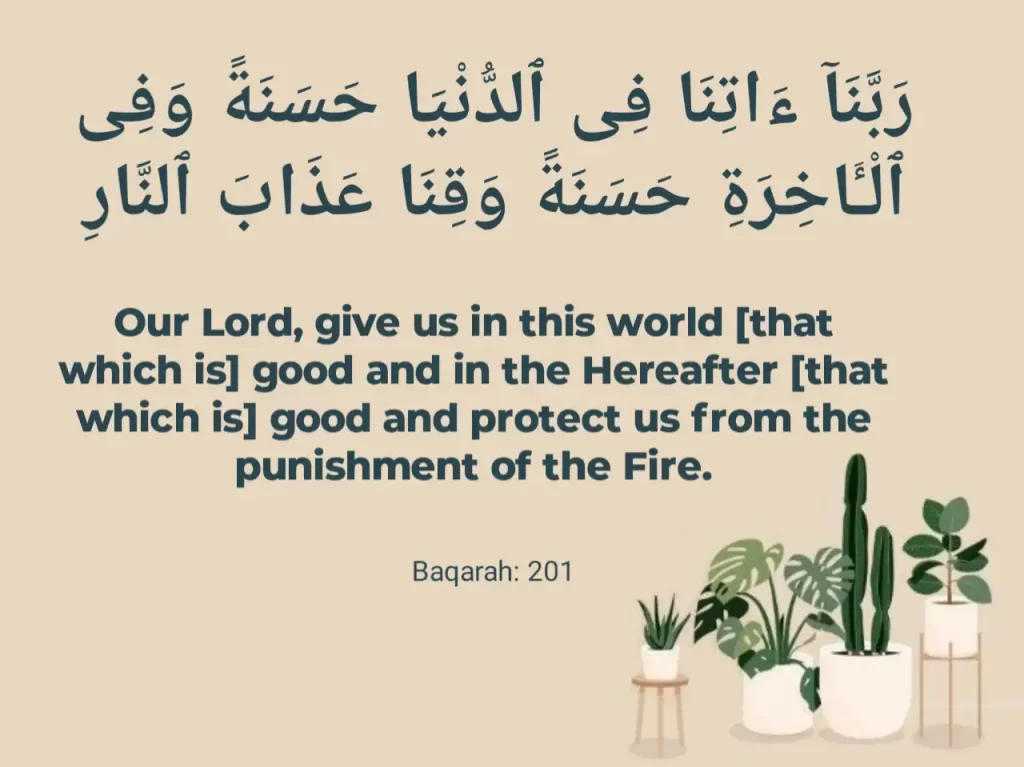
Allahumma Atina Fid Dunya In Arabic
The Arabic text of Allahumma Atina can be written as,
اللَّهُمَّ رَبَّنَا اتِنَا فِي الدُّنْيَا حَسَنَةً وَفِي الاخِرَةِ حَسَنَــةً وَقِنَا عَذَابَ النَّار
Transliteration
Allahumma atina fid dunya hasanata, wafil akhirati hasanata, wa qina adhab annar.
Meaning
O Allah, our Lord! Give us that which is good in this life, that which is good in the Hereafter and save us from the torment of the Fire.
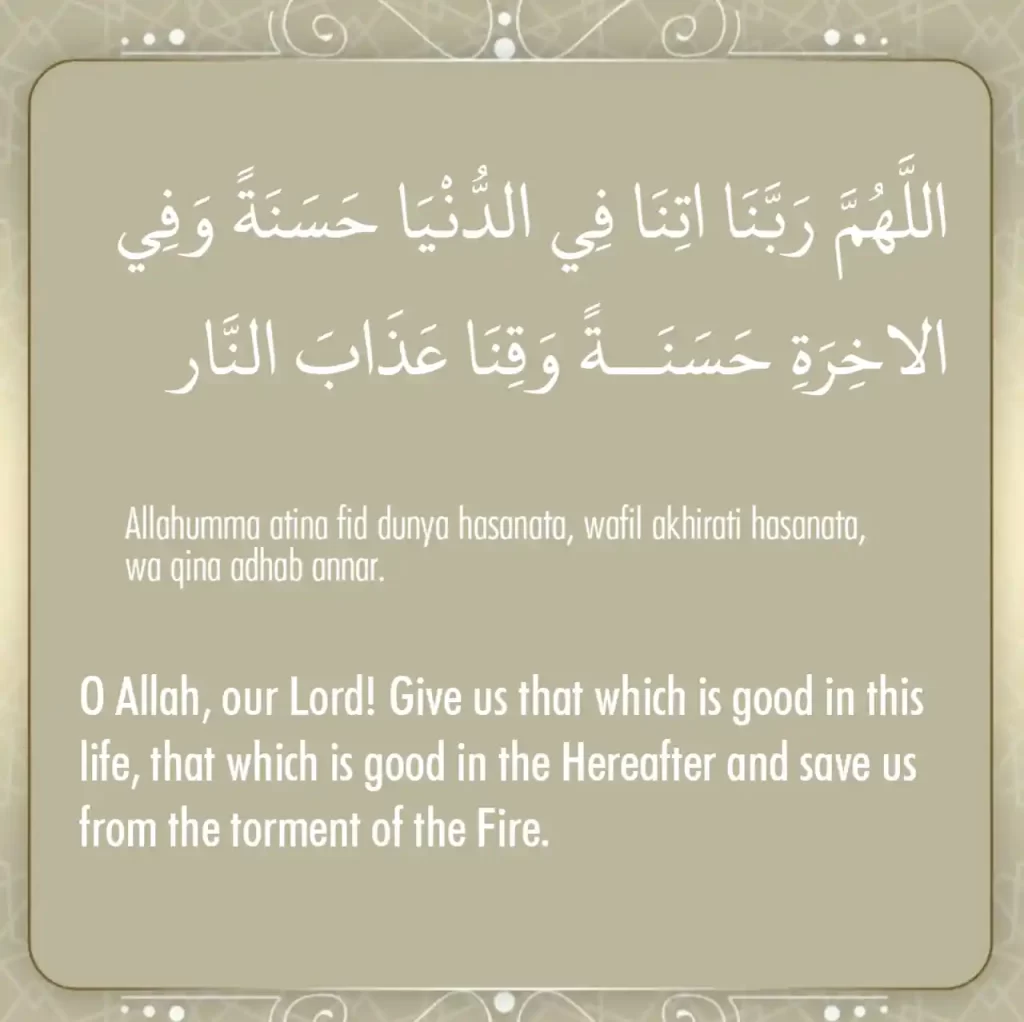
When to Read Rabbana Atina Fid Dunya
This is one of the best supplications you should be reciting every time you finish an act of worship.
You can also read it,
- At the end of the fardh prayers
- The last third part of the night
- When one asks Allah with His Greatest Name
- When drinking zamzam water
- Between adhān & iqāmah
- In sajdah
- The last portion of Jumu‘ah
- When it rains
- The du‘ā’ of the traveller
You should ask Allah for forgiveness for your shortcomings and thank Him for enabling you to do it.
From the above Explaination, it shows the excellence and importance of this supplication, so you should endeavour to say it more often.
However, the Prophet Muhammad used to end his rounds of circumambulation with it. He also used to say it between the Yameni corner and the black stone.
The Prophet SAW often recited this supplication and encouraged his followers to do likewise.
Advertisements

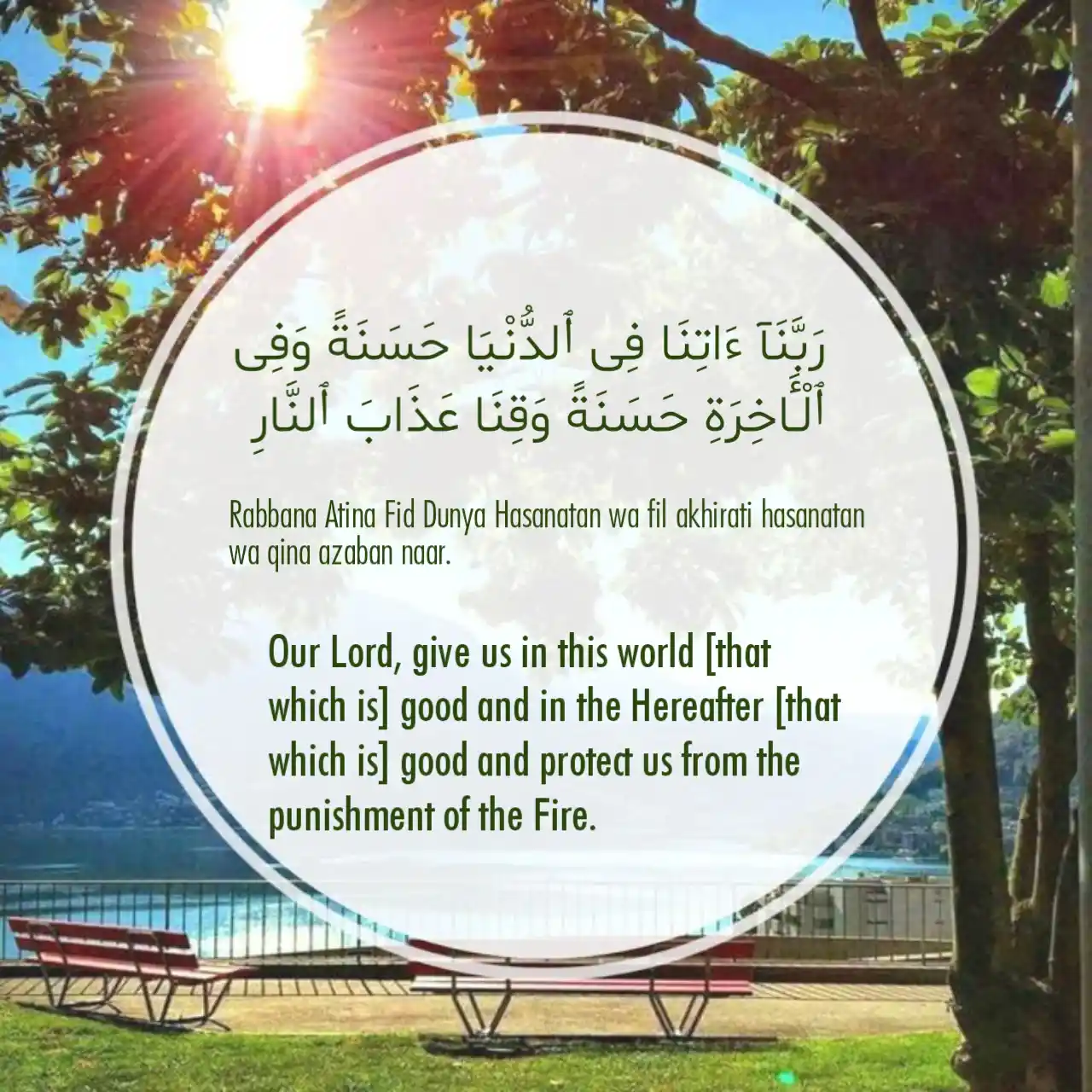
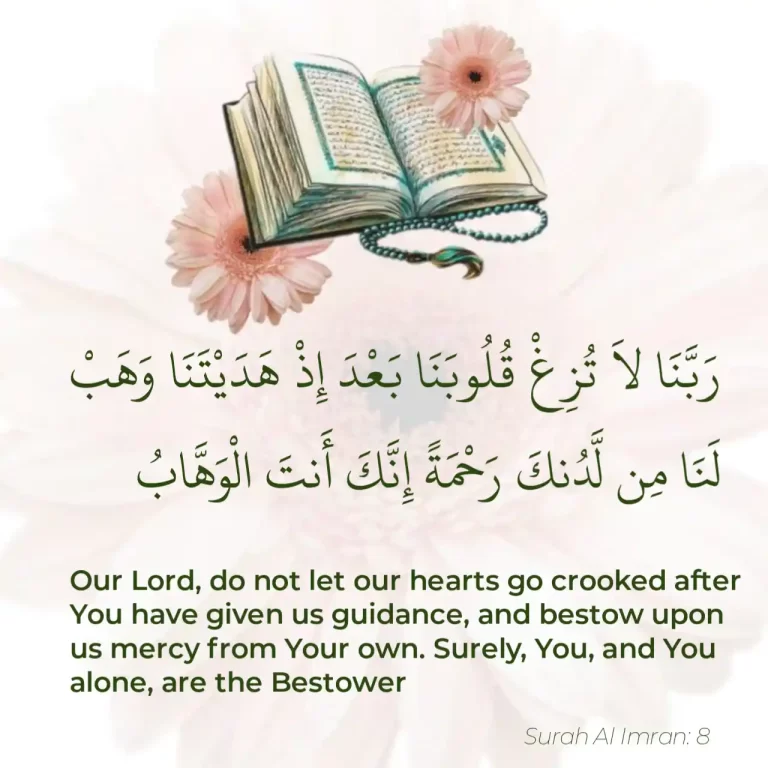
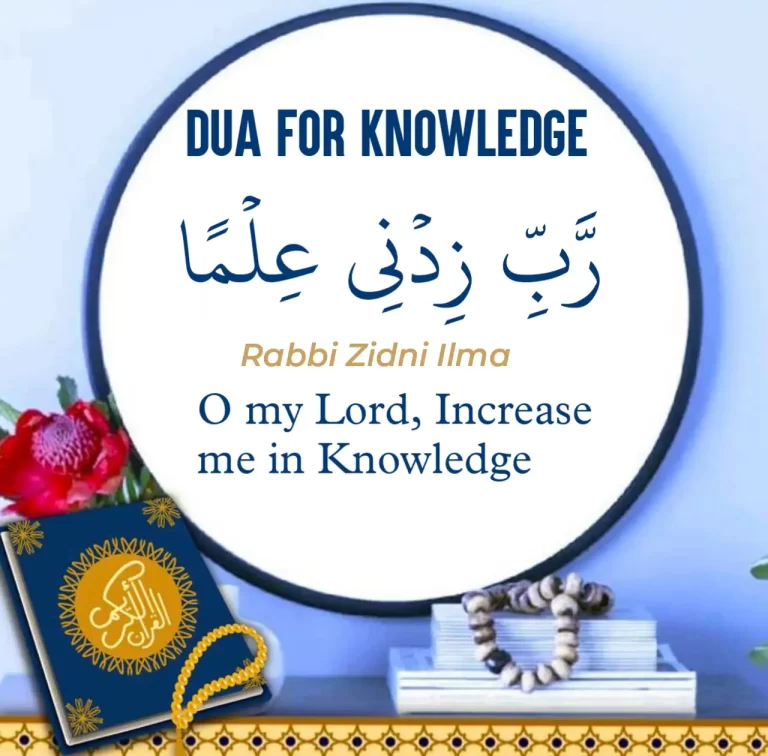
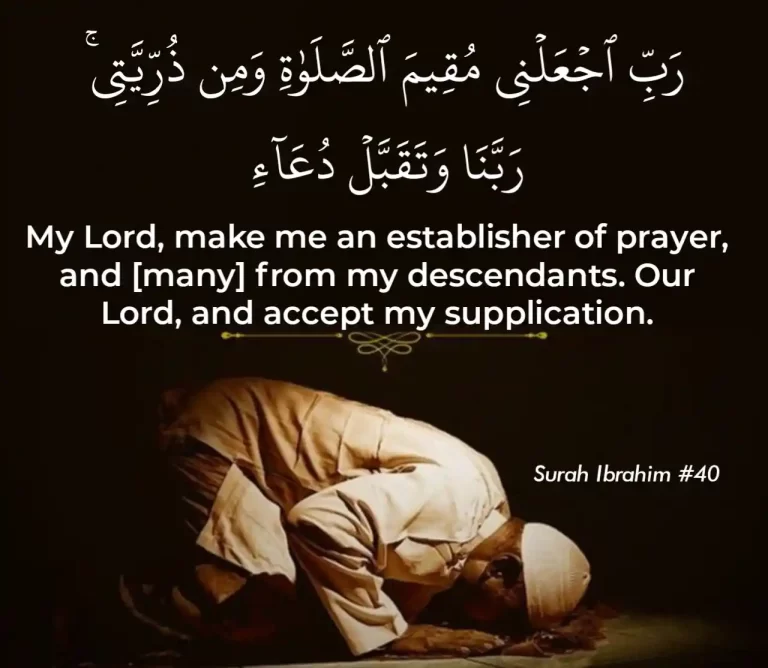
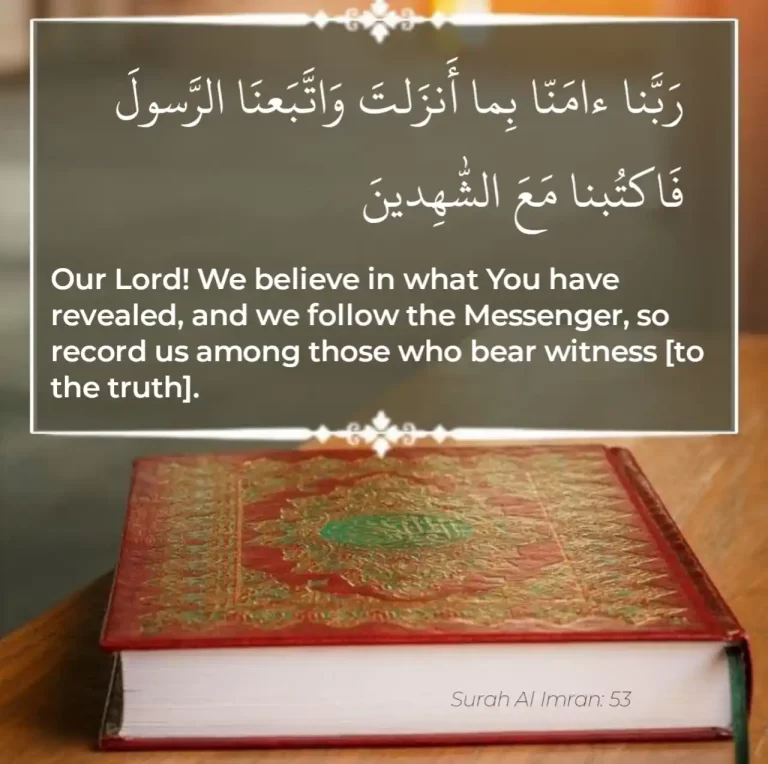
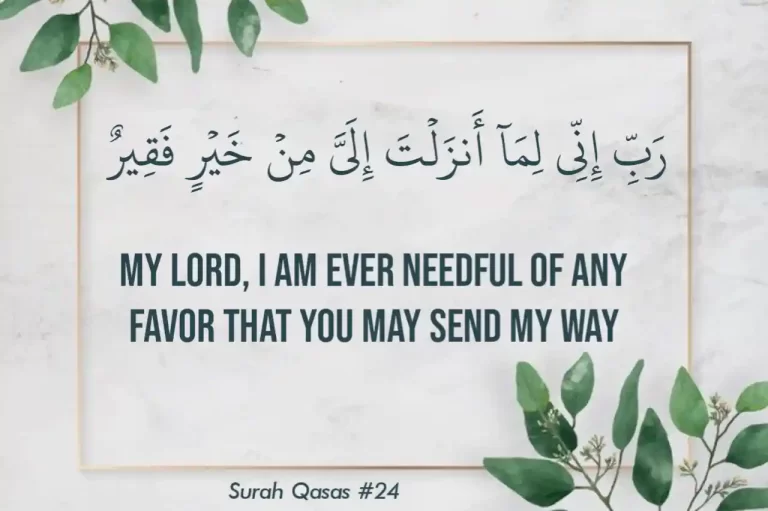
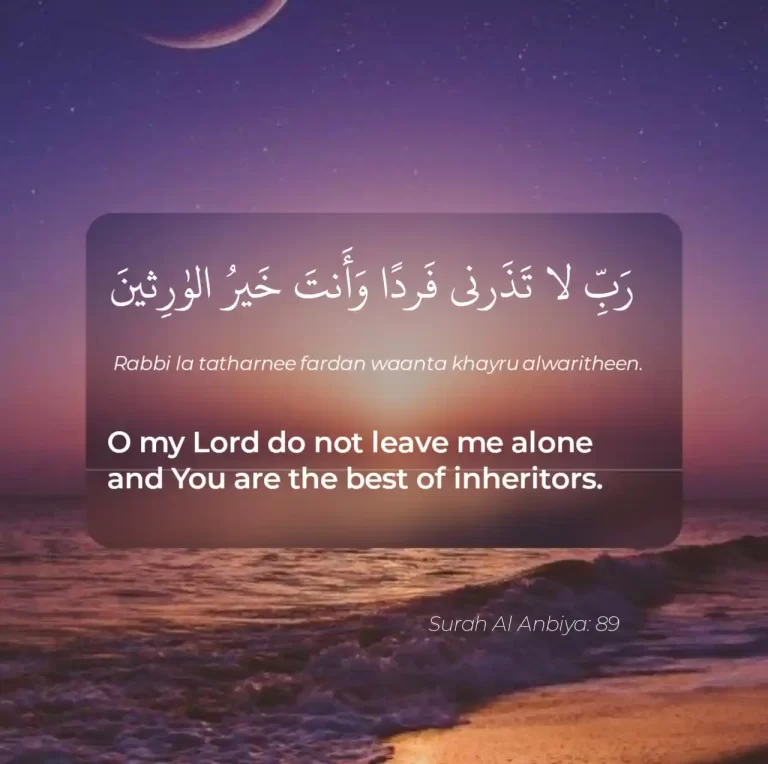
One Comment